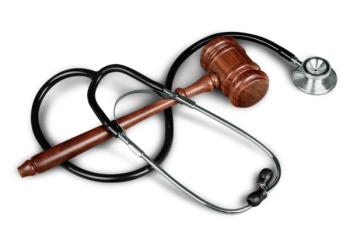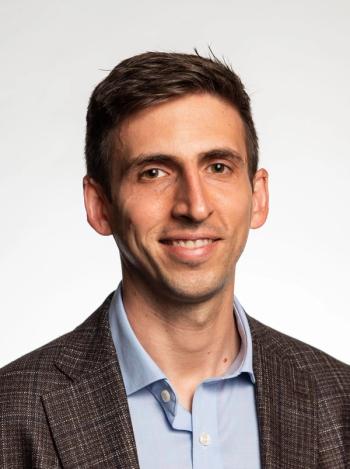
Making Mobile Health Work for Your Medical Practice
The "mHealth" industry has exploded, and smartphones, tablets, and apps are the buzzwords du jour. Trying to figure out how mobile devices and mHealth solutions can work for your practice can be overwhelming, but it’s crucial to stay current. We tell you how to get plugged in.
Physicians have always been a mobile crowd - zipping between exam rooms, clinics, and hospitals.
Now, with the help of smartphones and wireless access, healthcare is becoming mobile too.
Through smartphone apps and handheld devices, the mobile health (or "mhealth") revolution is changing how patients manage their care, how physicians run their practices, and how the community connects to share information.
"Healthcare is fundamentally a mobile process," says Andy Barbash, a neurologist at Holy Cross Hospital in Silver Spring, Md., who uses mhealth tools, such as secure messaging and virtual consults, in his daily practice. "People are mobile and professionals in healthcare are going around from room to room and hospital to hospital. It's not like they sit in one place. Technologies are catching up to the needs."
With mobile health tools, there seems to be fewer barriers to adoption (perhaps unlike with EHRs) and more excitement from physicians, which is fueling the revolution. EHR adoption has been advocated for years, but implementation has been slow, and experts say that's because the technology hasn't fit the practitioner's needs.
"There's no waiting. This is going to happen," Peter Waegemann, vice president of the mHealth Initiative, a Boston-based organization, says of mobile health adoption. "Patients are using it."
Barbash agrees, saying that physicians' inclination to implement EHRs was impacted by their ability (or lack thereof) to interact with the system through a mobile platform. "Lots of physicians won't invest in an EHR until it's mobile."
Barbash takes it one step further, explaining that it's a myth that physicians are slow to adopt technology in general. "They are slow to adopt the wrong technology," he says. And by many accounts, the diverse world of mobile health tools seems to be the right technology.
For those not yet plugged - or unplugged - into the revolution, it can seem a daunting path, with an exploding mobile apps market and nonstop real-time communication. But the benefits to adopting mobile health technologies are becoming clearer, and the industry is rising to meet physicians' unique needs. Here's your guide to mobile health, complete with help on overcoming concerns about the new platform and cutting through the noise to join the movement.
Why mhealth?
Ask five different people to define mobile health and you'll get five different definitions. As an evolving field, it hasn't quite been officially defined. To some, the term strictly refers to tasks that can be performed on a mobile device, such as a smartphone or health monitor.
Others have expanded the definition to include all computing done through a wireless connection.
"There's no established definition," says Joseph Kim, a physician technologist who runs mobilehealthcomputing.com, among other sites, adding the concept has continued to evolve, especially over the last year with the introduction of the iPad.
"The biggest message is that it's the use of mobile technologies in the healthcare setting for patients and providers," Kim says. It could encompass anything from sending and receiving text messages to accessing a full EHR.
Most importantly, mobile health is the push to get health information into the hands of physicians in the most effective way, says MGMA consultant Derek Kosiorek. "You will see a very strong trend toward these devices, because they are lightweight and it's easy to get data into their hands," he says.
The trend is becoming clear. A recent survey from PwC Health Research Institute found that 86 percent of physicians are interested in accessing EHRs wirelessly, 83 percent want to use mobile technology to prescribe medication, and 60 percent want to use mobile technology to communicate with patients.
Many physicians - about 72 percent and rising, according to Manhattan Research - are already using their smartphones and iPads to access clinical information and perform quick tasks. In coming years, more physicians are expected to use their smartphones for patient care, such as messaging though the EHR to staff or other doctors, or receiving clinical data directly from patients.
A few organizations are leading the way. For example, at the Mayo Clinic in Arizona, physicians are using a mobile application to treat stroke patients in rural areas. Physicians can access and manipulate radiology images on their smartphones, as well as connect to seven rural hospitals.
Meanwhile, patient demand for mobile technology is rising, and countless apps have emerged to satiate the hunger. One-third of patients surveyed by PwC said they would use their smartphones to track and monitor their health, and 40 percent said they would even be willing to pay for a device that sends information directly to their physician.
Currently, most patient-centric mobile health applications come in the form of reminders and alerts via text message. One high-profile and growing program is Text4Baby, a national campaign that delivers free weekly informational text messages to pregnant women and new moms. The Department of Health and Human Services is now evaluating the program for its effectiveness.
Mobile apps for consumers will quickly move beyond text messages and iPhone calorie counters. In the future, "patients will increasingly measure their vitals and send them via mobile phone to the clinic," says Waegemann.
Why such a buzz around mobile health? It's more than just a desire for cool new gadgets that's fueling the trend - the benefits for physicians and patients alike are being demonstrated as adoption grows and some studies aim to quantify the effects.
First, smartphone apps provide a convenient resource for medical reference and calculators, notes Kim.
The mobile technology can also improve physician efficiency, facilitating communication between staff and colleagues.
The PwC survey revealed that one-third of physicians make decisions based on incomplete information for nearly 70 percent of their patients, and mobile devices can ease that gap by allowing docs to access more information when they need it. Another 40 percent of physicians said they could eliminate 11 percent to 30 percent of office visits through the use of mobile devices for e-mailing and remote monitoring.
Yes, in the current state of affairs that would mean less reimbursement, but the model could be changing (more on that later), and the efficiencies leave room in your office schedule for must-see patients.
And of course, a major benefit is the improvement of patient outcomes. Better communication through monitoring tools can help physicians provide patient education and increase compliance rates. This in turn can mean reimbursement returns as pay-for-performance programs take center stage. "If patients can use it [mhealth] to improve their diabetes numbers and meet quality measures, that will improve their performance," Kim says. Physicians "can enhance patient care if they can appropriately leverage these tools."
An exploding industry
The software development industry is responding quickly, delivering thousands of medical apps for smartphones and introducing full EHR solutions designed for the iPad.
So far, it's mainly smaller companies stepping up to the mobile health plate. The larger EHR vendors haven't been the ones to lead the charge and might not be the right ones for the job, Waegemann says. It's a completely different industry, and the legacy practice systems were developed 10 to 15 years ago, he notes.
The release of the Apple iPad last April had a huge impact on mobile health, expanding the capabilities and the usability of these apps, says Kosiorek. Previous attempts to make EHRs mobile fell flat, due in large part to the scant real estate on the mobile device screens. Now, the iPad makes it easier for physicians to access more patient data remotely. Software vendors are taking advantage of the new tool and developing iPad-friendly apps, Kosiorek says.
"They died really fast, and it wasn't because of convenience, it was how the information was presented," he says of previous mobile-EHR attempts, "They couldn't get enough information in the device."
The apps are also becoming more sophisticated, promising more than handy medical references and calculators. Epocrates, one of the most well-known and popular app developers, is also eyeing the full-featured EHRs for mobile devices.
"We are going with it," says Tom Giannulli, Epocrates' chief medical information officer. "The strategy is to have a Web-based product, then native apps on the iPhone that you can use to tap into the EHR."
Other vendors, like ClearPractice and Dr. Chrono, are developing EHRs specifically for the iPad, meaning the interface was simplified and tailored for full access on the iPad.{C}
Meanwhile, healthcare apps - from medical dictionaries and calculators to weight loss tools and general health references - continue to proliferate across all mobile platforms. This rapid development can be problematic, says Kim. Some developers - often from no-name startup companies - aren't considering privacy implications, for example, and it's a largely unregulated field.
"They're just developing anything and everything," he says. "To hack into these systems and access tons of patient information is a real threat."
The FDA hasn't taken a strong stance on how the agency plans to regulate or certify the burgeoning industry, says Joseph Kvedar, a dermatologist and founder and director of the Center for Connected Health in Boston. Last fall, the FDA began eyeing medical apps to see which ones might be in need of regulation.
"It's evolving quickly, and I think people would do well to be thoughtful on those issues," Kvedar says.
He notes that a few companies have sought and received FDA approval for mobile health devices. It's an important step in adding some credibility and reliability to the industry, and separating some programs from the multitude of health and fitness apps available.
For example, Scottsdale, Ariz.-based MedApps received FDA clearance for its system designed to connect patients, families, and providers by offering a way to collect and report health information.
A second company, WellDoc in Baltimore, Md., received FDA clearance for a diabetes manager system, which is a decision support tool.
"As a physician myself, I am very protective of what my patients engage in and don't, and there's a lot of noise out there," says Suzanne Clough, an endocrinologist and WellDoc's founder and chief medical officer. "Clearance at least says it's been vetted, and that it will medically and clinically make sense."
Overcoming adoption barriers
As with most new technologies, privacy and security are among the top concerns when it comes to adopting mobile technology. Considering the personal health information that can be accessed via a mobile device, many physicians are concerned that devices can be too easily hacked or intercepted. The PwC survey found that one-third of primary-care physicians and 41 percent of specialists said they were "worried about privacy and security."
However, experts agree that security can be addressed through the right encryption measures, some as easy as password protecting your smartphone. Mobile devices can be further encrypted and practices can limit the amount of people who have access to the data using authentication tools, notes Giannulli.
Barbash says the security fears are overblown. "As you talk to more and more people - they are stuck in a world of fear.". The challenge, he says, is that without an institution writing the rules, the consumer must understand the privacy implications.
"The user has to take responsibility for both understanding what privacy is and learning about the privacy and security aspects of the tools they use," he adds.
Barbash likens mobile tech to using social networking sites such as Facebook. There's nothing inherently insecure about the application - if you properly set your privacy controls. It's the same with Web-based e-mail applications. "The only thing we need to focus on is education," he adds.
Another major barrier for many physicians is the lack of reimbursement for time spent managing care via a mobile device. When physicians are paid by volume, where's the incentive to reduce the number of patient visits? Of course, the potential to improve patient outcomes and even boost efficiencies in your office can motivate physicians to adopt mobile health, but what happens when that takes a bite out of the bottom line?
"Physicians are grappling with that now," Kvedar says. "You can give them credit for doing the right thing, but everyone has a family to feed."
But that could be changing, he says. Included in the health reform law are projects and pilots that address payment reform and would reward physicians based on quality outcomes, which could be facilitated and documented by mobile health applications. At the same time, larger healthcare organizations like Geisinger Health System in Pennsylvania, are driving innovation and leading the way for other organizations to follow.{C}
"Right now I see both cars traveling down the road at the same speed," Kvedar says. "In the next five years, the world is starting to look very different in terms of us being paid more for quality and outcome."
ClearPractice's president, Joel Andersen, agrees, saying mobile health is at the center of the patient-centered medical home concept and enhanced coordination of care. Mobile tools can make it easier for physicians to be the central care coordinator, improving access and communication among providers.
"Payment needs to be reflected outside of the face-to-face visit," Andersen says. "That's the care coordination… and that requires mobility."
The industry has begun to shift toward value-based reimbursement methodologies, Andersen says, as seen with the development of accountable care organizations (ACOs), for example, which are groups of doctors and hospitals that take responsibility for the cost and quality of care.
"It's ridiculous for doctors to have this level of accessibility and coordinate care without being paid," he says, but adds that regardless of reimbursement methods, physicians will continue to gravitate toward mobile technology because of the convenience and efficiencies. "They see the value, but if you want the watershed, wholesale change, it's going to have to be around payment."
Words of wisdom
Before jumping on the mhealth bandwagon, here's some advice from the experts:
Stay current. Keep close tabs on mhealth news and developments to be aware of how rapidly the industry is evolving, says Kim. Attend events and participate in discussions around mobile health, he says, including browsing related blogs and forums on the topic. This will help you stay informed, particularly when it comes to concerns about privacy. "For the average doctor, it's more about understanding the boundaries of what is safe and what is permissible," he says. Also keep an eye on some of the studies being released that are showing improved physician efficiency and patient outcomes through mobile health.
Cover your bases. When it comes to privacy and security, make sure you have your bases covered, says Kvedar. If you implement a mobile solution, double check that you aren't inadvertently exposing protected health information. Check with your malpractice carrier, and make sure your activities are HIPAA compliant, he says. For example, if your office decides to send text message reminders to patients, make sure they are generic and not containing sensitive information, or that your patients consent to that form of communication.
Cut through the noise. The mobile app market is becoming crowded, and not all apps are created equally. Before downloading an app or adopting a mobile device, do some research. Remember, some smartphone apps bring you medical dictionaries and calculators that can aid in your day-to-day practice, but it's important to make sure the source is reputable. For the more sophisticated devices, consider looking at the ones with FDA approval or that have been tested in clinical trials or studies. And be smart about the applications you select, making sure you opt for programs that really can make it easier for you to manage your practice or monitor your patients' health - rather than adopting a cool gadget that floods you with an overload of unusable data.
In Summary
The mobile health revolution is changing how patients manage their care, how physicians run their practices, and how the community connects to share information. Here are some highlights:
• Mobile apps for physicians can help improve efficiency for care management and improve communication between providers.
• Patients are also interested in using mobile apps to monitor their care and connect with their physicians.
• The mobile health industry is exploding, with developers creating thousands of smartphone apps and sophisticated health monitoring tools.
• Many physicians are concerned about not being reimbursed, but programs such as pay-for-performance and patient-centered medical homes hold a promise for rewarding use of mobile technology.
• Before adopting mobile tools, make sure to research the apps and the companies, selecting a reputable tool that will benefit your practice and your patients.
Sara Michael is editorial director for Diagnostic Imaging. She can be reached at sara.michael@ubm.com.
Newsletter
Optimize your practice with the Physicians Practice newsletter, offering management pearls, leadership tips, and business strategies tailored for practice administrators and physicians of any specialty.






